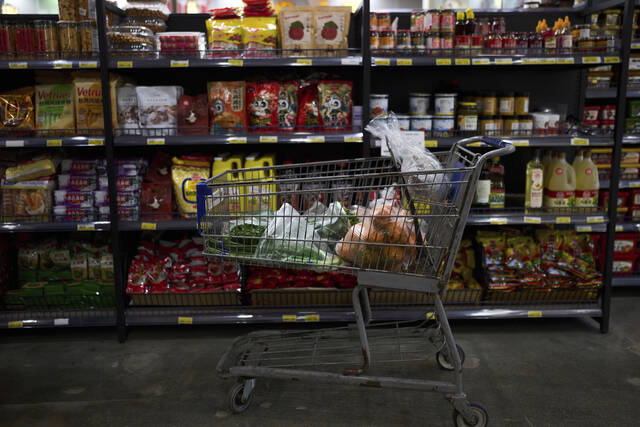This summer, my son ran a leadership project for his school’s National Honor Society chapter. He targeted food that would help feed children — things kids would like and that they could access without a grown-up.
He posted his list on Amazon and shared the information on social media. Friends, family and total strangers responded with hundreds of pounds of food.
My kid was pretty proud of the way it turned out and grateful to everyone who participated. What I don’t know is whether he remembers when we were the people who needed help.
For several years before my son started kindergarten, we were SNAP and WIC recipients.
I cringe when I hear people tell the disgusted, gossipy stories of what they saw someone on food stamps buying. Lobster! Giant sheet cakes! Cases of soda and racks of ribs and so much junk food!
I’m not going to say these situations don’t happen. I am, however, completely at a loss for how anyone knows so much about what anyone else is buying and how.
The shuttering of the program amid the federal government shutdown is bringing these stories and criticisms to a fever pitch. Some say SNAP shouldn’t use cards at all. It should be a specific amount of distributed food to cover basic needs: beans, rice, flour, etc. Let’s bring back government cheese.
The problem with these solutions is they don’t take into consideration — well, much of anything but assumptions and punishment. The poor should be treated like Oliver Twist in the workhouse. Give them gruel and demand gratitude.
But when we give everyone the same thing, we miss how this not only affects the recipients but everyone else in the food chain.
WIC recipients, for example, pick their products from specific options because things such as food allergies and sensitivities make a difference in what kids and breastfeeding mothers can eat. Some kids need a soy formula because they can’t have dairy, and some kids can’t tolerate soy.
With SNAP, you have the same issues. Products that are fine for diabetics are not always great for someone with heart disease and vice versa. If you have a child or a senior or a cancer patient who is too thin, you may need what looks like junk food to counter that.
If we handed out beans and rice, that doesn’t help people without kitchens. It doesn’t address how people get these distributions home without cars. It doesn’t recognize the logistics the government would take on for organizing and transporting food rather than just letting the grocery stores take care of that since they’re doing it already.
And let’s talk about those grocery stores. Taking away SNAP takes away a significant portion of business from companies as big as Walmart and as small as your neighborhood mom-and-pop convenience store.
Tell people they can no longer buy pretzels and candy — both things that might be necessary to the healthy diet of someone with specific needs — and you shoot Pennsylvania’s economy in the foot. The state is a leader in food production with more than 2,300 companies.
I hated being on SNAP. I felt the weight of the judgment constantly. People love to share those lobster-and-cake stories liberally, never thinking they are talking to someone who receives or has received help. But at the same time, I was grateful for the ability to put food on the table.
I know that right now, people who are just like me are scared to death about what will happen without the nation’s most important hunger-relief program.
If you have never had to rely on SNAP for help, be grateful, but also be kind. I’m glad my son doesn’t remember when we needed that outstretched hand, but I’m even more happy he’s willing to extend his own to help others.








